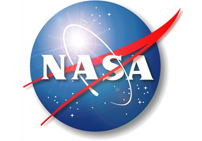NASA FY2013 Operating Plan Update
 NASA operating plan adjusts commercial crew, planetary science funding, Space Politics
NASA operating plan adjusts commercial crew, planetary science funding, Space Politics
“Space News reported Friday that a long-awaited fiscal year 2013 operating plan for NASA will make some funding adjustments for several key programs, including commercial crew development and planetary science. The plan, not publicly released yet by NASA, would fund commercial crew at $525 million, effectively undoing the effects of sequestration and rescission on the program. Planetary science, which received additional funding even after sequestration and rescission compared to the administration’s request, would lose that funding: it would go back to $1.2 billion, the amount originally requested by the administration for FY13. The funds cut from planetary would be redistributed to the James Webb Space Telescope and to earth sciences.”
Marc’s note: Good news for Commercial Crew, not so much for Planetary Science.
Update: Confirmed: NASA Defies the Will of Congress by Raiding Planetary Science Funding, Planetary Society
“Despite our best efforts and the best efforts of Congress, the implacable thirst to undercut the most visible and successful program within NASA continues unabated.”
Marc’s note: While I can sympathize with those who support a strong Planetary Science budget I also see the need for Commercial Crew to get the funding it needs. In world of finite resources you can’t everything. The only way to please everyone would be a budget increase. But that’s not going to happen in the current political climate.









“While I can sympathize with those who support a strong Planetary Science
budget I also see the need for Commercial Crew to get the funding it
needs. In world of finite resources you can’t everything.”
The problem is this is not a unique one time event. Planetary Science – the most successful NASA activity – always gets the short end of the stick and has for decades. This will always be made up in the future with ambitious programs such as JIMO which never come about.
“Always gets the short end of the stick.” All NASA science enterprise need to come up with less expensive missions that can achieve good science. If we don’t, we’re toast. And trust me, everyone but the Hubble-huggers and JWSTers are on the short end of the same stick.
No disagreement that is a good goal, but it is the manned far more than the unmanned which tend to overspend their budget. Granted the JWST is a notable exception.
“the manned far more than the unmanned which tend to overspend their budget”
But the money went to the commercial crew program, which can’t overspend its budget. It’s the one part of NASA that is run on firm, fixed-price pay-for-performance contracts. If costs go up, the contractors pay it from their own pockets, not NASA.
I believe we are pretty much in agreement. The commercial crew which works effectively and less expensively is indeed underfunded resulting in us having to borrow flights for far too long.
My point is there is also a price to be paid for constantly cutting back on aggressive unmanned missions so we can pay for Watts and Orion. We are rewarding the wasteful and punishing the efficient.
Even with this revision Commercial Crew would get $525M, much less than the $821M originally requested by the Obama Administration, delaying the return of US human launch capability by at least a year. Meanwhile “SLS … would receive roughly $1.8 billion… Orion would get about $1.1 billion.” So in just one year, despite a sequester under which we have cut vital programs that save lives, we will spend nearly three billion for Constellation. NASA needs to come up with more rational priorities and less expensive methods for human spaceflight. If we don’t, we are violating the trust of the nation.
I agree 100%. That’s three billion a year that is wasted on pork.